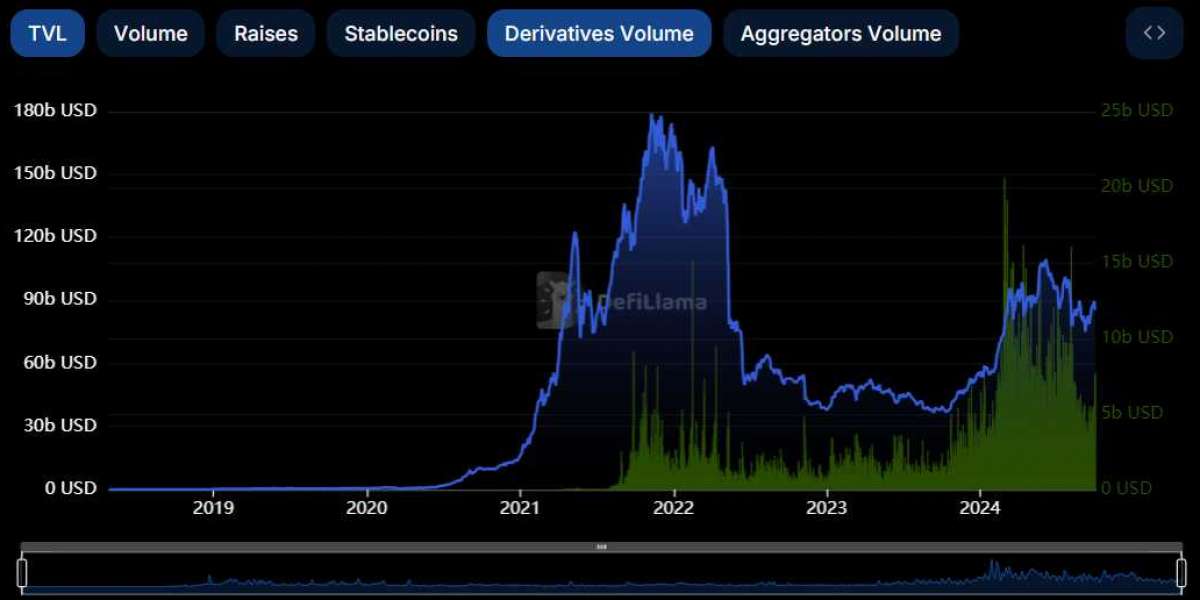In recent years, decentralized finance (DeFi) has redefined how we think about traditional financial markets, and one of the most transformative innovations within DeFi is the rise of Onchain Derivatives Protocols. By leveraging blockchain technology, these protocols enable decentralized trading of derivatives, providing an accessible and secure alternative to traditional finance.
What Are Onchain Derivatives Protocols?
Onchain Derivatives Protocols are systems built on blockchain networks that allow users to trade derivatives without the need for intermediaries. In traditional finance, derivatives contracts are typically negotiated through centralized exchanges, which act as intermediaries. However, these exchanges come with limitations, including high fees, regulatory constraints, and limited accessibility. In contrast, Onchain Derivatives Protocols use smart contracts to execute trades directly on the blockchain, eliminating intermediaries and offering a decentralized, peer-to-peer trading experience.
These protocols allow users to trade various types of derivative contracts, including futures, options, and swaps, using cryptocurrency. The security and transparency of blockchain technology enhance user trust and allow for real-time tracking of contracts, something not as easily achieved in centralized systems.
How Do Onchain Derivatives Protocols Work?
At the core of Onchain Derivatives Protocols are smart contracts—self-executing contracts with the terms of the agreement directly written into code. When certain conditions are met, these contracts automatically execute, reducing the need for manual intervention and making trades quicker and more efficient.
These protocols also rely on oracles, which are services that fetch real-world data (such as asset prices) and feed it into the blockchain. Since derivative contracts often depend on real-world variables like asset prices or market indices, oracles play a critical role in ensuring accurate, real-time data.
In addition to being fully automated, many Onchain Derivatives Protocols are designed to be composable, meaning they can easily interact with other DeFi applications. This interoperability allows users to seamlessly integrate derivative trading into their broader DeFi strategies, enhancing portfolio management and risk control.
The Benefits of Onchain Derivatives Protocols
Increased Accessibility: Traditional derivatives markets are often restricted to accredited investors, but onchain protocols are open to anyone with internet access and a compatible wallet. This increased accessibility democratizes trading and expands financial opportunities for users around the world.
Enhanced Security and Transparency: Since trades are recorded on a public blockchain, users can verify every transaction, fostering trust. Additionally, the decentralized nature of these protocols reduces the risk of manipulation or fraud by intermediaries.
Lower Costs: Without centralized intermediaries, transaction fees in Onchain Derivatives Protocols are typically lower than those on traditional exchanges. This makes trading more cost-effective for both retail and institutional investors.
Improved Efficiency and Speed: Smart contracts streamline the trading process, reducing delays and eliminating the need for manual oversight. With automated execution, traders can engage in real-time transactions, benefiting from market movements without waiting for confirmation from a centralized body.
Risks and Challenges
Despite their many advantages, Onchain Derivatives Protocols also come with risks. One major concern is the reliance on smart contracts, which, if not coded properly, can introduce vulnerabilities. There is also the risk of "oracle attacks," where malicious actors manipulate data sources to influence the outcome of trades. Regulatory uncertainty remains another challenge, as governments worldwide are still deciding how to approach the regulation of DeFi products.
The Future of Onchain Derivatives Protocols
The growth of Onchain Derivatives Protocols is expected to continue as more users recognize the benefits of decentralized trading. Innovations in blockchain scalability and improved oracle technology will likely address current limitations, making onchain derivatives even more attractive to a wider audience.
As the DeFi ecosystem matures, Onchain Derivatives Protocols have the potential to revolutionize global finance. With continued advancements, these protocols could redefine how we think about risk management, asset allocation, and financial accessibility. By opening up derivative trading to a broader audience, they are paving the way for a more inclusive, efficient, and decentralized financial future.







